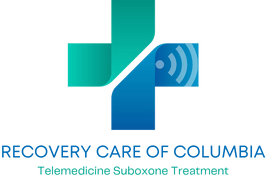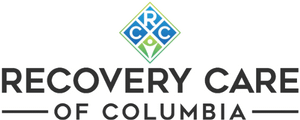Columbia Suboxone Clinic Blog
Opioid Addiction Affects 8.7 Million Children – I Was One of Them
I never expected my story to include addiction, especially not one that would affect my family the way it did. But the truth is, opioid addiction doesn’t discriminate, and today, it affects more than just the person using. According to NCSACW, nearly 8.7 million children in the U.S. live in a household where at least one parent is addicted to opioids or other substances.
I was one of those parents.
💊 How Opioid Addiction Took Over My Life
In the early 2000s, I was prescribed pain medication after a back injury. Like so many others, I started with a legitimate need. But what began as post-surgical pain relief with Percocet and hydrocodone spiraled into a full-blown opioid addiction that would last over 13 years.
As my tolerance grew, I found myself taking up to 240mg of oxycodone a day. I wasn’t getting high anymore—I was just trying to feel normal and avoid withdrawal. When I couldn’t take a pill every hour, withdrawal symptoms kicked in almost immediately.
But it wasn’t just me who was suffering—my family was, too.
👨👩👦 How Addiction Affects Families and Children
Addiction is not just personal—it’s generational.
I remember Thanksgiving 2013 clearly. My son was decorating the Christmas tree, and all I could do was watch. I couldn’t help. I could barely stand. I was completely disconnected from my own life—and from his.
That moment shattered me.
And it’s happening in millions of homes across America. Parents are spending rent money on pills, missing school events, and neglecting their relationships. The emotional, financial, and developmental toll on children is immeasurable.
⚠️ Fentanyl and Nitazene: A Deadly New Chapter
Today, opioid addiction is more dangerous than ever. Prescription opioids have given way to street drugs like heroin, fentanyl, and Nitazene (ISO)—with fentanyl being 100 times more potent than morphine, and Nitazene 50 times stronger than fentanyl.
The DEA reports that most street heroin is now laced with fentanyl, and counterfeit pills are nearly indistinguishable from the real thing. Every dose is a gamble—and every use could be a fatal one.
😔 What Opioid Withdrawal Feels Like
If you’ve never experienced opioid withdrawal, imagine being hit by a truck—and then feeling like that truck is still on top of you.
After 13 years of using, I tried to quit. I went into a treatment center for 14 days, and just three days before I left, they stopped my medication. I had no idea what was coming.
For the next 13 days, I endured nonstop withdrawal: twitching, sweating, shaking, insomnia, vomiting, and complete mental fog. After 6 weeks, I was still exhausted. I couldn’t lift my arms, eat properly, or think clearly.
Eventually, I did what many of us do—I gave up. I went back to the pills.
🔄 The Cycle I Couldn’t Break (Until…)
I tried everything. Tapering. Cold turkey. Inpatient treatment. But nothing stuck. I was convinced that I was a hopeless case.
Then, one phone call changed my life.
On January 8, 2014, a friend called and mentioned that someone he knew had found success with Suboxone. She was clean, back with her family, and working again. I couldn’t remember what “doing well” felt like—but for the first time in years, I felt a flicker of hope.
That day, I typed “Suboxone clinic near me” into Google—just like our patients do today—and scheduled an appointment.
💥 My First Suboxone Dose Changed Everything
The clinic experience wasn’t great. I almost walked out. But thank God I stayed.
After picking up my prescription, I took my first Suboxone film in the parking lot and went to grab a bite to eat. Within 20 minutes, everything changed:
-
My mind felt sharp
-
My body stopped twitching
-
The cravings vanished
-
I was hungry—for the first time in months
It was the first time in 13 years I felt normal.
That was the day I started my life again.
💸 Treatment vs. Street Drug Costs
Treatment isn’t just life-saving—it’s cost-saving.
Here’s how it compares:
| Type | Monthly Drug Cost | Treatment Cost (with Suboxone) |
|---|---|---|
| Street Heroin (2 grams/day) | $3,600–$6,000 | $0 (TennCare) or ~$550 (Self-pay) |
| Oxycodone (120mg/day) | $4,320 | $0–$370 + med |
🌱 Why Recovery Care of Columbia Is Different
Not all Suboxone clinics are created equal. Here’s what makes us unique:
- Owned by people in recovery who understand the struggle
-
Kindness-first culture
- No judgment—ever
-
Telemedicine convenience
-
Suboxone medication delivery
-
Privately owned and operated by people who live in Middle Tennessee
-
Discrete, confidential, secure treatment
👉 Start In-Clinic or Telemedicine Treatment
🛠️ Ready to Begin?
You have two choices to make:
-
In-clinic or telemedicine treatment?
-
TennCare, commercial insurance, or self-pay?
👉 Register with TennCare Medicaid
👉 Register with commercial insurance
👉 Register as a self-pay patient
Final Thoughts
Addiction nearly destroyed my life. It separated me from my family, drained me financially, and stole over a decade of my time. But Suboxone gave me a second chance—a way out of the cycle I thought I’d never escape.
Today, I live a life I’m proud of. My family got me back. My son got his dad back. And you—or your loved one—can get that second chance too.
All you have to do is take the first step.
External Resources



